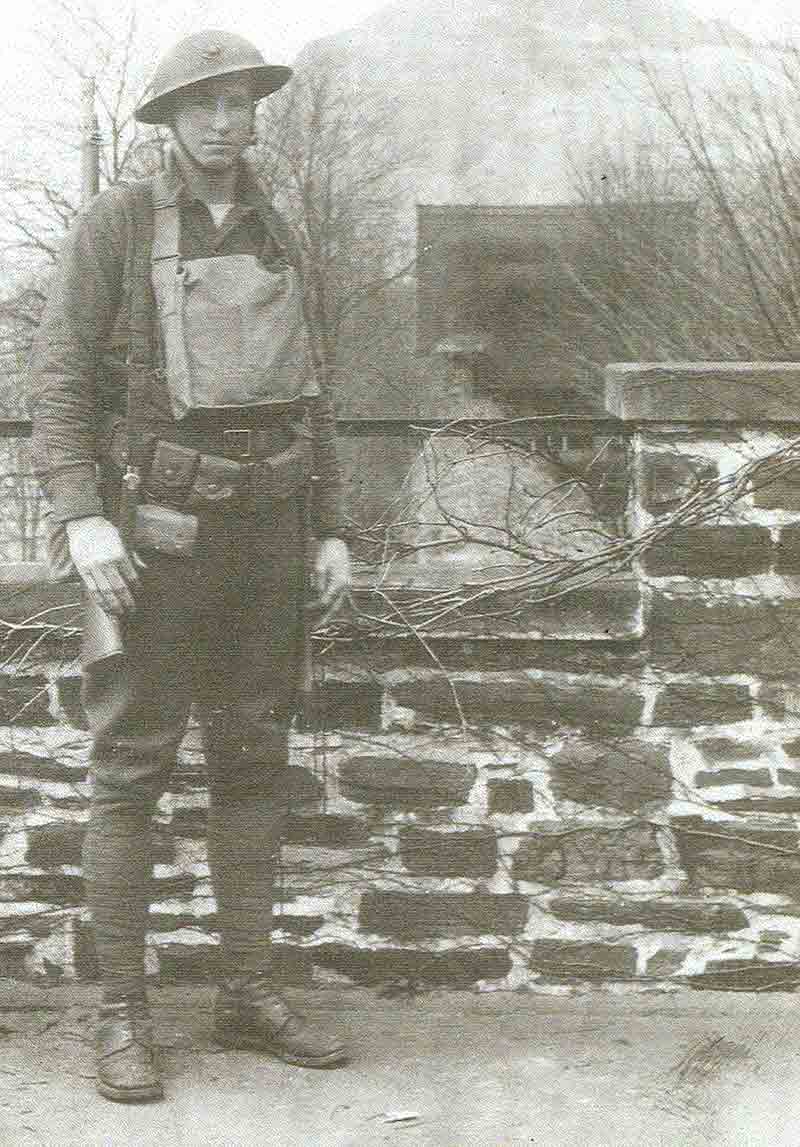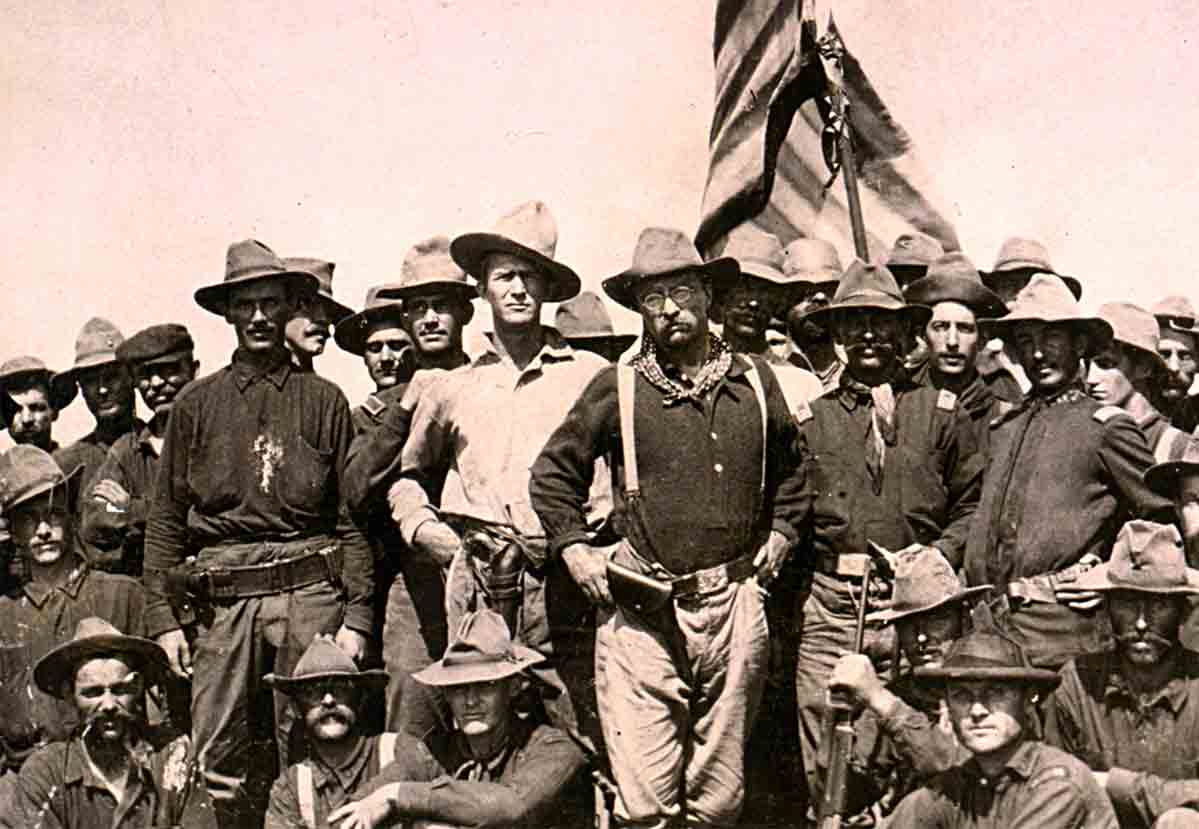The medley that the Fightin’ Texas Aggie Band plays with the War Hymn has roots that stretch, believe it or not, as far back as a 1752 opera.
Here’s a walk through the history of these pieces of music that are now linked together indelibly in the minds of generations of Aggies. (For a stirring musical analysis from an Aggie bandsman, see this essay by the late Patrick Harris ’69.)
"Recall"
This bugle call signals the end of a task or duty; in the Army’s frontier days, if soldiers were out on a work detail such as gathering forage for their horses, these notes would recall them to camp in time to ready for the evening dress parade and roll call. In the early 20th century at A&M, it signaled that classes were over for the day. For many years, Aggie Band halftime drills have memorably begun with the head drum major announcing "Recall" followed by the order for the band to "Step off on ‘Hullabaloo.’"
 Sanders Corps of Cadets Center
Sanders Corps of Cadets Center
"War Hymn"
J.V. "Pinky" Wilson ’21 wrote the words in 1918 while serving in World War I, incorporating a couple of older Aggie yells; the tune is the same as a barbershop classic that was later published as "Goodbye, My Coney Island Baby."
The song’s original name, in fact, was "Goodbye to Texas University." Even back in the 1920s, there were Aggies who felt it focused too much on a rival, and Wilson actually wrote another verse in 1928 to address that. It’s now known as the "first verse," and there have been periodic pushes to adopt it, which have all failed -- even in 2012, after A&M left its longtime rival behind to join the SEC.
A fact lesser-known among Aggies is that the Austin school’s fight song begins "Texas fight, Texas fight, and it’s goodbye to A&M" -- written in response to an earlier A&M song called "Farmers Fight" and using the same tune, a sped-up version of the "Taps" bugle call.
Some historical variants:
In this circa-1940 recording, the Texas A&M College Concert Band and the Singing Cadets perform the War Hymn -- very rapidly! -- followed by "The Spirit of Aggieland," complete with yells.
This is not the Aggie Band, but rather a group called the Colonial Club Orchestra performing a 1928 jazz cover version of the War Hymn – that begins with the bugle call "Assembly," instead of "Recall."
 Courtesy of Scott Walterscheid '84
During post-war guard duty in Germany in 1919, Wilson wrote out this copy of the song he had composed a year earlier while in the trenches in France.
Courtesy of Scott Walterscheid '84
During post-war guard duty in Germany in 1919, Wilson wrote out this copy of the song he had composed a year earlier while in the trenches in France.
"Saw Varsity's Horns Off"
The tune was written by Jean-Jacques Rousseau in 1752 as a gavotte (a lively French dance) for his opera "Le devin du village," or "The Village Soothsayer".
By 1823, Rousseau’s gavotte had migrated into American hymnals as "Rousseau’s Dream" or "Greenville," and later into American folk music as "Go Tell Aunt Rhody" or "The Old Gray Goose."
"Wildcat"
The flourish that the Aggie Band plays after first downs, between "Saw Varsity’s Horns Off" and "Hot Time" and at other moments is called "Wildcat."
It may be part of a song the band used to fire up students early in the last century, between at least 1914 and 1935.
"The strains of Wildcat will never fail to bring the twelfth man into action," according to A&M’s 1935 yearbook. Two decades earlier, "Celebrations after a victory are always headed by the band playing the college airs such as ‘Love Nobody But You,’ and ‘What Makes the Wildcat Wild,’" according to the 1915 yearbook.
"Wildcat" was played at yell practice – which was held four times a week! – in front of the Y, according to the 1933 yearbook.
A 1921 news story referred to "the battle song of the Farmers: ‘What makes the wildcat wild, boys.’"
The full song may be lost, or at least residing only in an Old Ag’s dusty footlocker or instrument case.
Sheet music exists for a 1918 song called "That’s What Makes A Wildcat Wild"; Lt. Col. Jay O. Brewer ’81, senior associate director of the Aggie Band, took a look at it and identified a section that could have evolved into the modern "Wildcat," but said, "I would be real hesitant to try to confirm there’s a tie-in there."
In 1927, an improvisational jazz version ”completely transformed” “the popular song ‘Wild Cat.’” A 1930 fiddle recording called “What Made The Wild Cat Wild” by a Texas duo, the Humphries Brothers, can be heard here.
"Hot Time"
 William Dinwiddie via Library of Congress
William Dinwiddie via Library of Congress
The tune is "Hot Time In The Old Town Tonight," an 1880s minstrel song that became popular with soldiers in 1898’s Spanish-American War and was adopted by Roosevelt’s Rough Riders. (Some 89 Aggies served in the Spanish-American War, and so did Lt. Col. Richard Dunn, director of the Fightin’ Texas Aggie Band from 1924 to 1946.) You can hear one set of older lyrics in jazz singer Bessie Smith’s 1927 version. A parody version about the legend that "Mrs. O’Leary’s cow" started the Chicago Fire of 1871 has lyrics that are similar to what Aggies sing today.
An extra tidbit: The Rough Riders, aka the First U.S. Volunteer Cavalry, had this signature cheer: "Rough, tough, we’re the stuff / We want to fight and we can’t get enough / Whoopee!"



